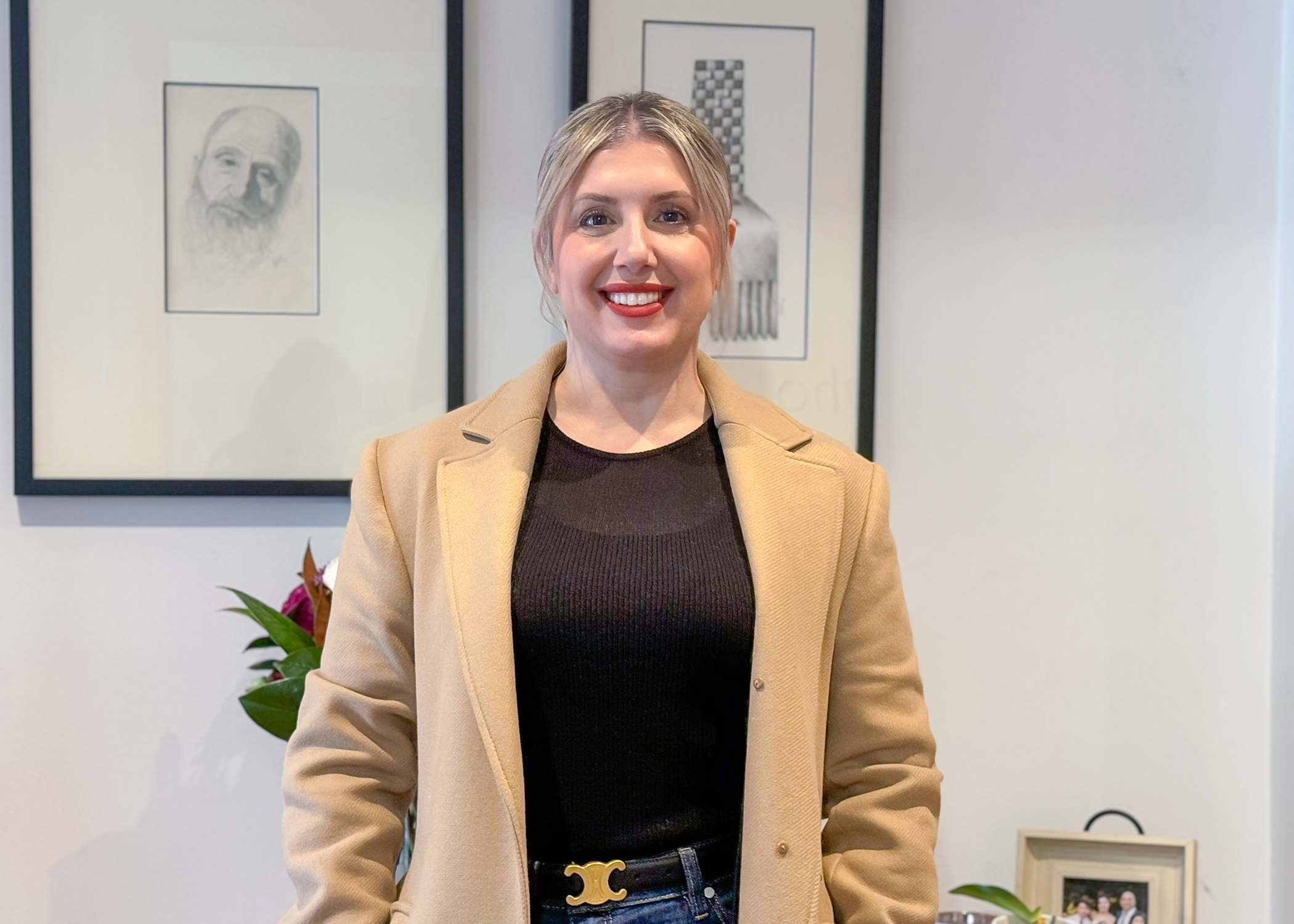Born in Tripoli, Lebanon • Birth year 1975 • Studied Science and Education at Monash University in Melbourne • Highest Degree Post Graduate Diploma in Secondary Education • Lives in Melbourne, Australia • Occupation Mathematics Education Specialist
There were only two things I ever wanted to be as a child – an artist or a scientist. Growing up as the daughter of a struggling artist, you can guess which one I was vehemently encouraged not to pursue. So, with great regret, I set aside my artistic dreams to focus on the more ‘financially stable’ study of science.
However, for a young migrant girl born in the 1970s, things were not that simple. Back then, women and girls weren’t even close to touching the glass ceiling, let alone breaking it. We were too busy dodging patriarchal bullets. For many women, particularly those of certain ethnicities, the central mission was marriage and children. Our dreams didn’t amount to much because there was only really one worth pursuing, and it definitely did not end with the word “scientist”.
(…) How does someone who was told by teachers that she would never understand maths, and who failed almost all her maths exams, end up as a maths education specialist?
Despite this, I was not discouraged. Much to the dismay of my mother, I had inherited my father’s burning desire to punch the status quo right in the face. Consequently, my feminist roots sprouted early. If I’m being totally honest, while I genuinely loved science, the idea of pushing against gender stereotypes, some of which still exist today, was equally as appealing. So, I set my course with determination.
It was not without its obstacles – and there were many. One obstacle in particular that could have derailed my entire professional future was my ongoing struggle with mathematics. I didn’t just struggle a little; I struggled a lot. For as long as I can remember, and throughout school, it was one of my greatest sources of shame. My failures in this subject accompanied me through primary school, high school, and even into university, where I eventually graduated with a major in physics and geophysics.
But how? How does someone manage to get a degree in physics while struggling so much with maths? And how does someone who was told by teachers that she would never understand maths, and who failed almost all her maths exams, end up as a maths education specialist? The answer is this: it’s not that I wasn’t good at maths, or that I couldn’t understand it. It was simply that I couldn’t understand the way maths was being taught to me!
Traditional mathematics approaches may work for a small percentage of the population, but the majority, especially those from lower socio-economic backgrounds, non-native language speakers, or those with non-neurotypical brains, are rarely among that select few.
Traditional mathematics approaches may work for a small percentage of the population, but the majority, especially those from lower socio-economic backgrounds, non-native language speakers, or those with non-neurotypical brains, are rarely among that select few. Unfortunately for me, I fell into all three categories, so school was a constant struggle. However, science was my art – a creative outlet for my curiosity, and anyone can tell you that when you love something and are curious about it, the teaching becomes secondary to the learning.
As I moved further into my career, I began to apply this newfound understanding to my teaching, shifting away from traditional methods and towards more conceptual approaches to maths education – methods that I wished I had been exposed to as a child and as a student of STEM.
The decision to leave the safety of my classroom in 2016 was a very difficult and personal one. However, it shaped some of the greatest learnings and experiences of my lifetime, and three years later, it led me to begin my company, EM Maths Consulting.
I began my life wanting to be one of two things, an artist or a scientist, and little did I know that I would end up as both.
The fear that comes with putting everything on the line to follow a dream can be debilitating. However, sometimes the desire to follow it is just too strong to ignore. So here I am, eight years on, and still clinging to the convictions that started me on this pathway – to drive change in mathematics education, and to encourage a system that supports and nurtures the strengths and uniqueness of every child regardless of race, gender, demographic, or physical, emotional, or spiritual preferences.
I made many discoveries along the way, but the best one was this: There is a little scientist in all of us, one who is compelled to ask questions, be curious, seek synergy, and find beauty. We don’t often connect these things to the learning of mathematics, but we should. I began my life wanting to be one of two things, an artist or a scientist, and little did I know that I would end up as both.



Recent Comments